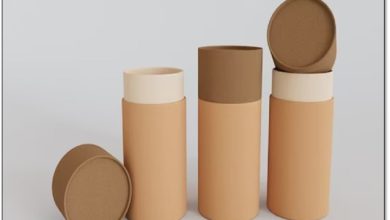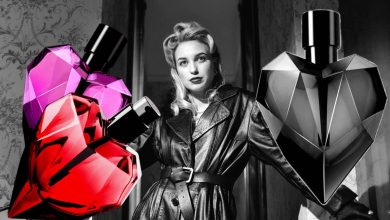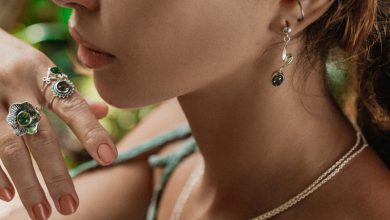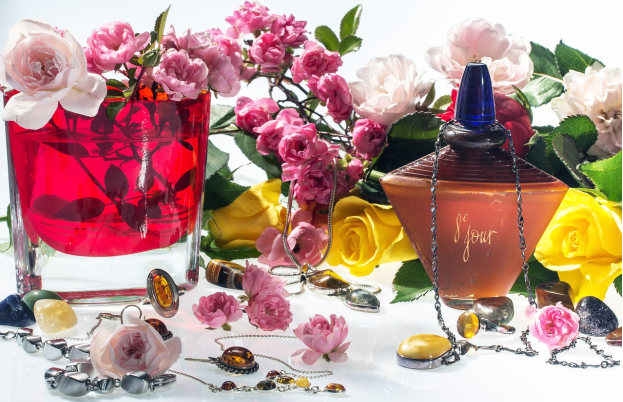
Fragrance vs Parfum: Decoding the Terminology
Are you confused about the difference between fragrance and parfum? You’re not alone.
The terms are often used interchangeably, but they actually refer to different things.
Today, we will explore what fragrance and parfum mean, the types of perfumes available in the market, and how they differ from each other.
We will also discuss the role of scent in perfumes, including how Arabian scents have influenced the industry.
Lastly, we will address a popular trend: perfume gift sets for men.
So whether you’re buying perfume for yourself or as a gift for someone else, read on to learn more about fragrances and how to choose the right one that lasts longer!
Understanding the Terms: Fragrance and Parfum
The concentration of perfume oil in fragrance and parfum determines their longevity and intensity, essential for choosing the right Arabia scent. The variation in aromatic compound concentration impacts their scent’s longevity, contributing significantly to the final perfume scent.
This French term plays a crucial role in creating a new scent, impacting cosmetics and Christmas sales. Understanding the much lower fragrance concentration in EDC and its drug administration by the FDA is essential for consumers and businesses alike.
Definition of Fragrance
Fragrance, also known as eau de toilette, features a much lower fragrance concentration compared to parfum. This french term encompasses eau de cologne, eau de toilette, and eau fraiche, making it suitable for daywear with new scents like floral and citrus notes.
With its lowest perfume oil concentration, fragrance is ideal for single application and sensitive skin, meeting FDA regulations for cosmetics. Embracing the hustle of everyday life, fragrance offers a variety of options, making it a popular choice, especially during Christmas.
Definition of Parfum
Featuring the highest concentration of fragrance, parfum, also known as pure perfume, offers a long-lasting aroma due to its much lower fragrance concentration. With a characteristically lower alcohol content, this French term is suitable for allergy-prone individuals seeking a new scent.
Parfum, often referred to as extrait, presents a rich, deep fragrance favored by those in cosmetics and drug administration. Its intensity and longevity make it an ideal choice, especially during Christmas or hustle.
Exploring the Different Types of Perfumes
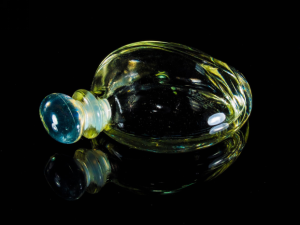
Eau fraiche, eau de cologne, and eau de toilette are categorized based on fragrance concentration. Meanwhile, eau de parfum and perfume, with much lower fragrance concentration, offer longer-lasting scents. Different types of perfumes, such as eau de cologne, cater to varying preferences.
Understanding fragrance concentration, such as eau de toilette, is crucial in choosing the right perfume. Furthermore, the type of fragrance, like eau fraiche, significantly impacts the overall scent experience and aroma longevity.
Eau Fraiche, Eau de Cologne, Eau de Toilette
Among the various types of perfumes, eau fraiche is distinguished by its much lower fragrance concentration, offering a light and refreshing aroma. Eau de cologne, associated with the French term “faire sa toilette,” is commonly used for grooming and showcases citrus notes.
On the other hand, eau de toilette, often abbreviated as edt, provides a new scent experience with a moderate perfume oil concentration, making it suitable for daywear. These distinct fragrance types cater to different preferences and are widely used in cosmetics.
Eau de Parfum and Perfume
Eau de parfum, containing a much lower fragrance concentration than perfume, is a French term for “water of perfume.” It offers a new scent experience with a hustle and warmth.
This type of fragrance falls under the drug administration regulations of the FDA, ensuring its safety for cosmetics use.
Eau de parfum features fragrance families like vanilla, sandalwood, and mint, while perfume, also known as parfum, boasts pure, natural notes and a rich, full-bodied scent. Perfume, with the highest concentration of essential oils, provides a luxurious and long-lasting aroma.
Fragrance vs Parfum: Understanding The Differences
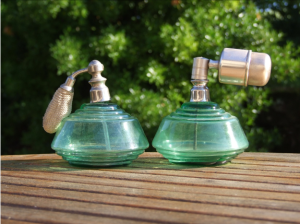
Fragrance and Parfum are terms often encountered in the world of scents, and they can signify differences in concentration and formulation.
Let’s decode the terminology to understand the nuances between fragrance and Parfum:
1. Definition:
- Fragrance:A broad term that refers to any pleasant or distinctive smell. It encompasses scents found in various products, including perfumes, colognes, body sprays, and more.
- Parfum:Specifically denotes a highly concentrated form of fragrance. It is a type of scented product with a high concentration of aromatic compounds, providing a more intense and long-lasting scent experience.
2. Concentration of Aromatic Compounds:
- Fragrance:The term doesn’t specify the concentration of aromatic compounds. It can be used broadly to describe scents regardless of their strength.
- Parfum:Signifies a high concentration of aromatic compounds, often ranging from 15% to 20% or even higher. Parfum is one of the most concentrated forms of fragrance available.
3. Usage and Application:
- Fragrance:Encompasses various scented products meant for personal use, home, or industrial settings. The application method can differ based on the specific product.
- Parfum:Specifically designed for personal application on pulse points like the wrists and neck. Due to its high concentration, a small amount of Parfum is sufficient for a potent and long-lasting scent.
4. Naming and Marketing:
- Fragrance:Used broadly to describe scents without necessarily conveying the exclusivity or concentration of aromatic compounds.
- Parfum:The term is often associated with luxury and premium scents. Parfum signifies a high-quality, concentrated fragrance that is crafted with precision.
5. Cost and Perception:
- Fragrance:The cost can vary widely based on the brand, ingredients, and the type of product. It may not necessarily correlate with the concentration of aromatic compounds.
- Parfum:Generally priced higher than other forms of fragrance due to its high concentration. The cost reflects the quality of ingredients and the longevity of the scent.
6. Intensity and Longevity:
- Fragrance:The intensity and longevity can vary widely depending on the specific product. It’s a broad term that doesn’t provide details about the strength of the scent.
- Parfum:Known for its intense and long-lasting nature. Due to the high concentration of aromatic compounds, Parfum can linger on the skin for an extended period, often lasting throughout the day.
Understanding these distinctions can guide you in selecting the type of scented product that aligns with your preferences in terms of concentration, application, and overall olfactory experience.
Whether opting for a general fragrance or a specific Parfum, each choice contributes to your unique scented journey.
The Role of Scent in Perfumes
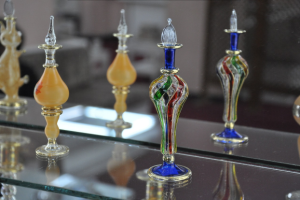
Arabian scents, renowned for their exotic and captivating aroma, have a notable influence on contemporary perfume fragrances. Scent creation is significantly shaped by the fragrance families of jasmine, amber, and nutmeg.
The selection of perfume oil concentration, like extrait, directly affects the final scent and longevity of the aroma. Additionally, the head note, or top note, of a perfume provides the initial impression of the fragrance, while perfume mists, lotions, and aftershave collectively contribute to the overall fragrance experience and aroma longevity.
Influence of Arabian Scents
The opulent allure of modern perfume creations is significantly influenced by Arabian scents, adding depth and richness to fragrance families. Essential oils of jasmine, amber, and sandalwood in Arabian scents offer a luxurious, long-lasting aroma, embodying the oriental notes of vanilla, cinnamon, and mint.
These warm, spicy scents infused with mystery and sensuality contribute to the overall allure of perfume fragrances, creating a lasting impression.
Perfume Gift Sets for Him: A Trending Choice?
Perfume gift sets for men, featuring various fragrance options like eau de toilette and eau de parfum, are gaining popularity. These perfume gift sets for him offer a comprehensive grooming experience and reflect thoughtfulness in selecting a tailored fragrance concentration for him. With all-inclusive scents and grooming essentials, perfume gift sets make an ideal choice for men.
In Parfum and Fragrance, which lasts longer?
When it comes to longevity, the concentration of perfume oil is key. Parfum, with its high concentration of essential oils, offers a longer-lasting fragrance experience. Fragrance, on the other hand, provides a light and invigorating aroma with moderate longevity.
Conclusion
To sum up, understanding the difference between fragrance and parfum can help you make an informed choice when it comes to selecting a perfume. Fragrance refers to a broad category that includes various concentrations of scent, while parfum specifically denotes the highest concentration of fragrance.
Different types of perfumes such as eau de cologne, eau de toilette, and eau de parfum offer varying levels of longevity and intensity. Additionally, the role of scent in perfumes is influenced by cultural preferences, with Arabian scents being particularly prominent. Whether you opt for fragrance or parfum, choose a scent that makes you feel confident and reflects your personal style.

